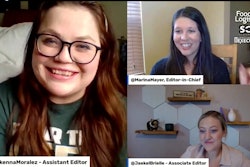
In October 2020, the World Business Council for Sustainable Development (WBCSD) and its more than 200 global leading member companies raised the bar of business commitment to sustainability by adopting new membership criteria.
Among other things, all members, including 40 major North American corporations, must now set an ambition to reach net-zero greenhouse gas emissions no later than 2050 and have a science-informed plan to achieve it. These conditions will let member companies focus on putting credible science-based action plans into motion to transform economic systems.
Adoption of the new membership criteria was a first step toward delivering the change the planet and its inhabitants desperately need now, and in the future, to adequately serve Earth’s population, which is expected to grow to more than 9 billion people by 2050.
These conditions preceded the recently launched Vision 2050: Time to Transform, a comprehensive WBCSD framework for business action to urgently address three key challenges -- the climate emergency, nature in crisis and mounting inequality.
The report emphasizes several mindset shifts that corporate leaders must adopt to be successful, such as understanding the purpose of business, what it means to be a resilient business in the long term, how they can move beyond doing no harm and become regenerative for the ecosystems, communities they serve and the markets in which they operate.
These mindset shifts will drive business to pursue real transformation, providing the reasons businesses need to mitigate transition risks, factor in transition costs and safeguard their ability to generate long-term value and future success. They are key to running companies efficiently well into the future.
Taken together, the new member criteria and the Vision 2050 roadmap highlight the leading role that procurement and supply chain executives will play in this transformation to address the challenges that are critical for a net-zero economy, which impacts climate, nature and how people will live in the future.
Procurement teams are now in a unique position, and aligning corporate strategy with its supply chain operation remains at the top of the C-Suite’s agenda.
Procurement teams can accelerate their initiatives to achieve these goals, but the support of their senior most executives is an absolute must. Beyond C-Suite support, procurement teams can take the following steps to transform their entire value chain.
· The procurement mindset must be shifted, emphasizing resilience over efficiency. In doing so, procurement can create profound system transformation and growth. This entails reexamining supply chain compliance programs and investing in a performance approach to supplier sustainability management systems. By integrating supplier sustainability performance into the procurement processes and decisions, procurement executives can unlock the right balance between agility and resilience and drive broad scale improvement in social and environmental impacts.
o Procurement teams need the support and guidance from the executive level to drive these decisions, giving them the power to flourish.
· Approaches to transparency on complex issues such as supply chain emissions are advancing quickly. For example, new carbon monitoring technologies and tools for engaging suppliers are available that go beyond predictive models to empower suppliers to measure, benchmark and achieve not only transparency on carbon and GHG emissions, but also to drive the needed reductions.
o Procurement teams must be given the resources from the executive level to implement these technologies that help monitor, assess and identify smarter, more sustainable actions. Upon implementing these powerful technologies, procurement teams need to know the C-Suite will take their findings beyond consideration, flipping them into actionable insights.
· Identify risks, assess supplier management systems and provide feedback, guidance and training to help them to improve.
o Procurement teams are in the driver’s seat, navigating the winding road of carbon emission reductions and improved sustainability practices. To adequately and successfully do so, in-depth information is needed and it must be shared with top-level management.
While these are certainly not all of the positive actions procurement teams can tackle immediately to achieve success for their companies and their suppliers long-term, they represent a great start to urgently address the climate emergency, the loss of nature and mounting inequality.
Make no mistake. Change is coming and will impact every supplier across North America and the world much sooner than most realize.
The industry also learned valuable lessons as a result of the Coronavirus disease (COVID-19) pandemic, which uncovered multiple weaknesses throughout supply chains across many different industry sectors. The absence of on-site workers due to COVID-19 restrictions also impacted supply chain operations, which are adopting new policies and provisions to keep systems running at a maximum level.
Now, the next greatest challenge is for suppliers to shift their mindsets so they can achieve long-term success for their companies, humanity and the planet.
The role of procurement and supply chain executives to change supplier behavior is vital in this effort.
















